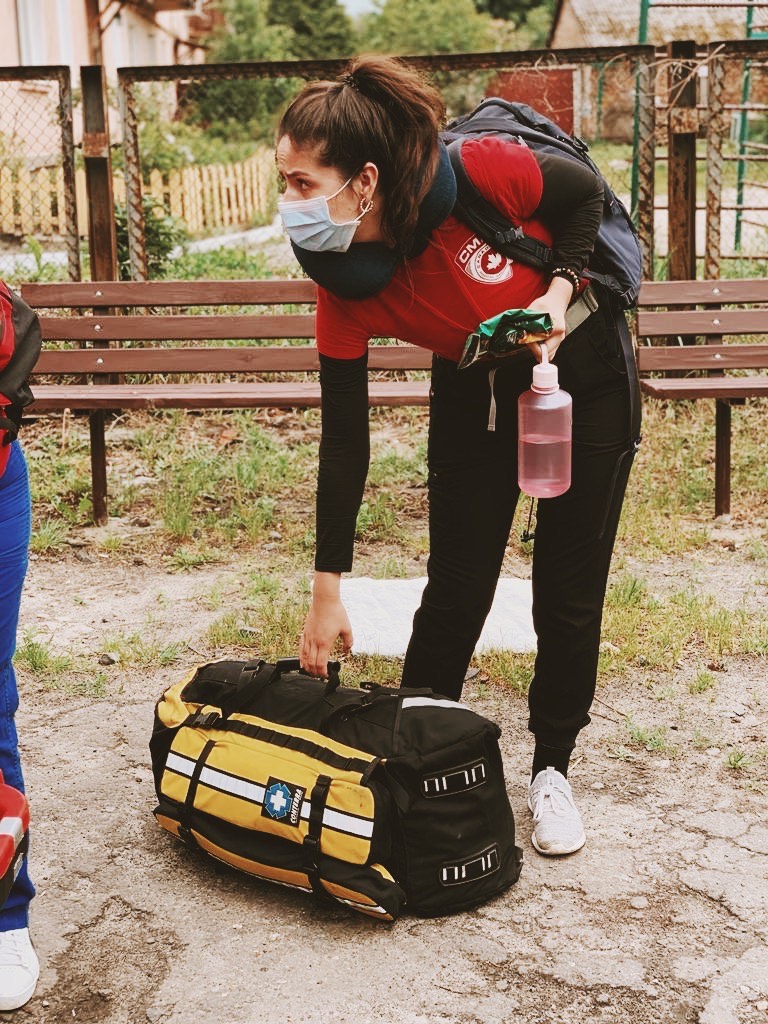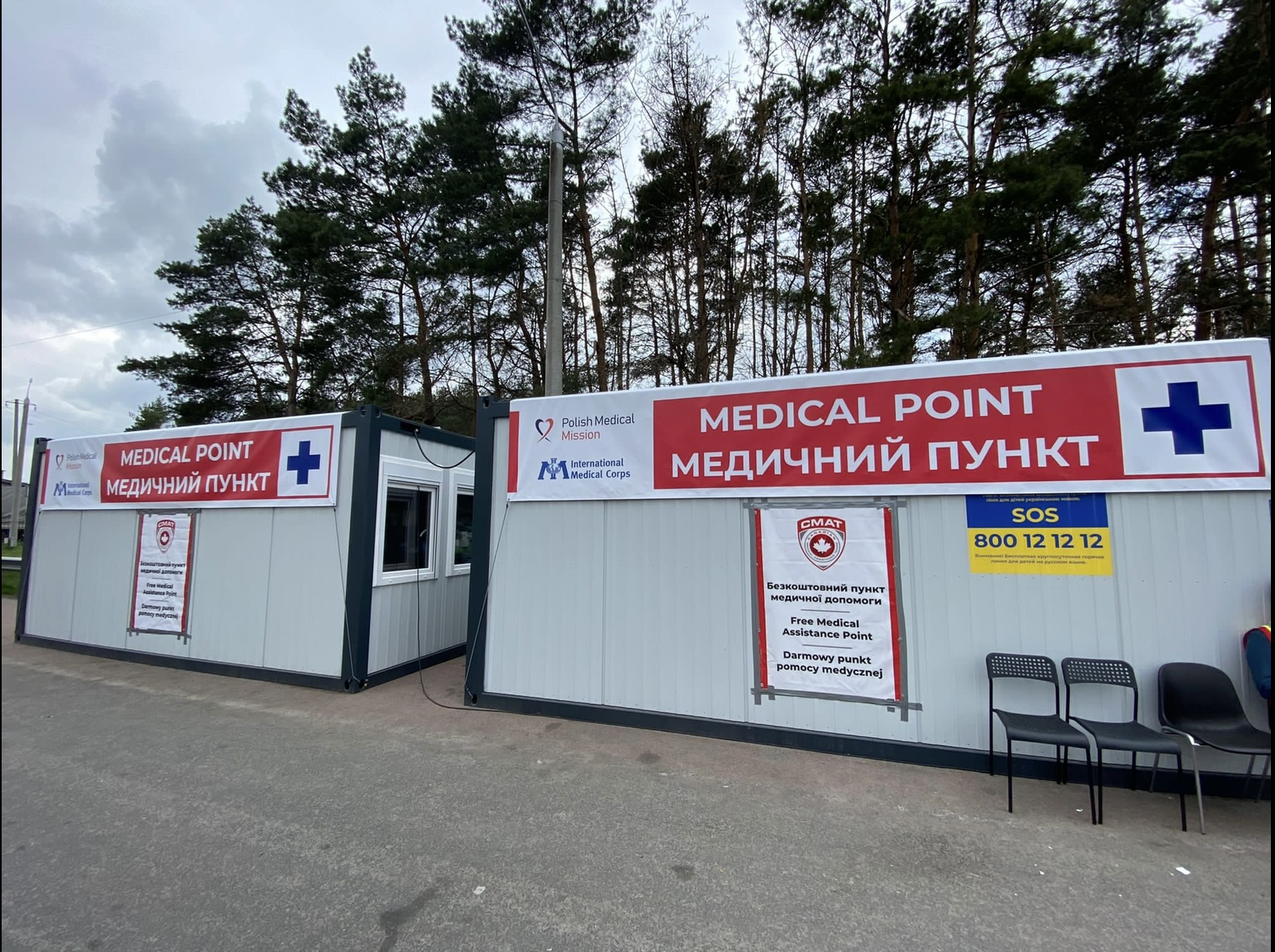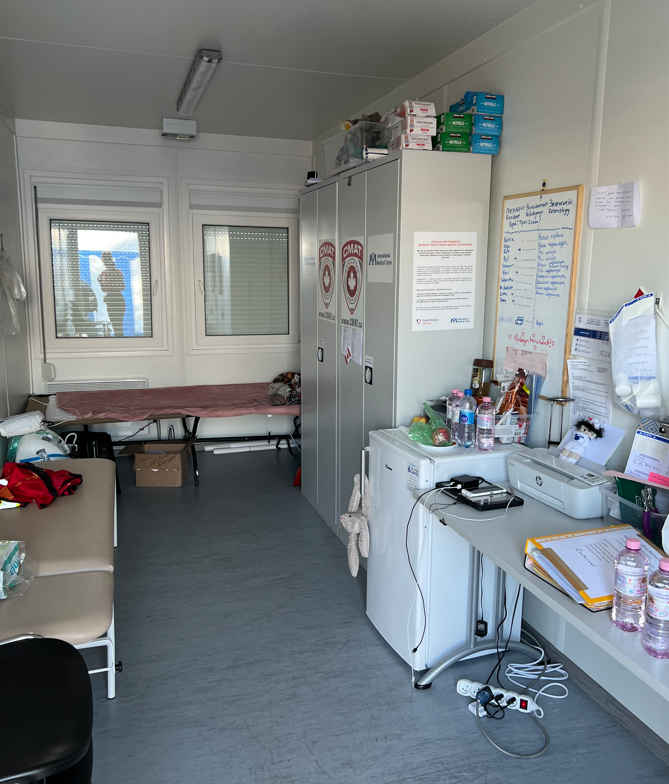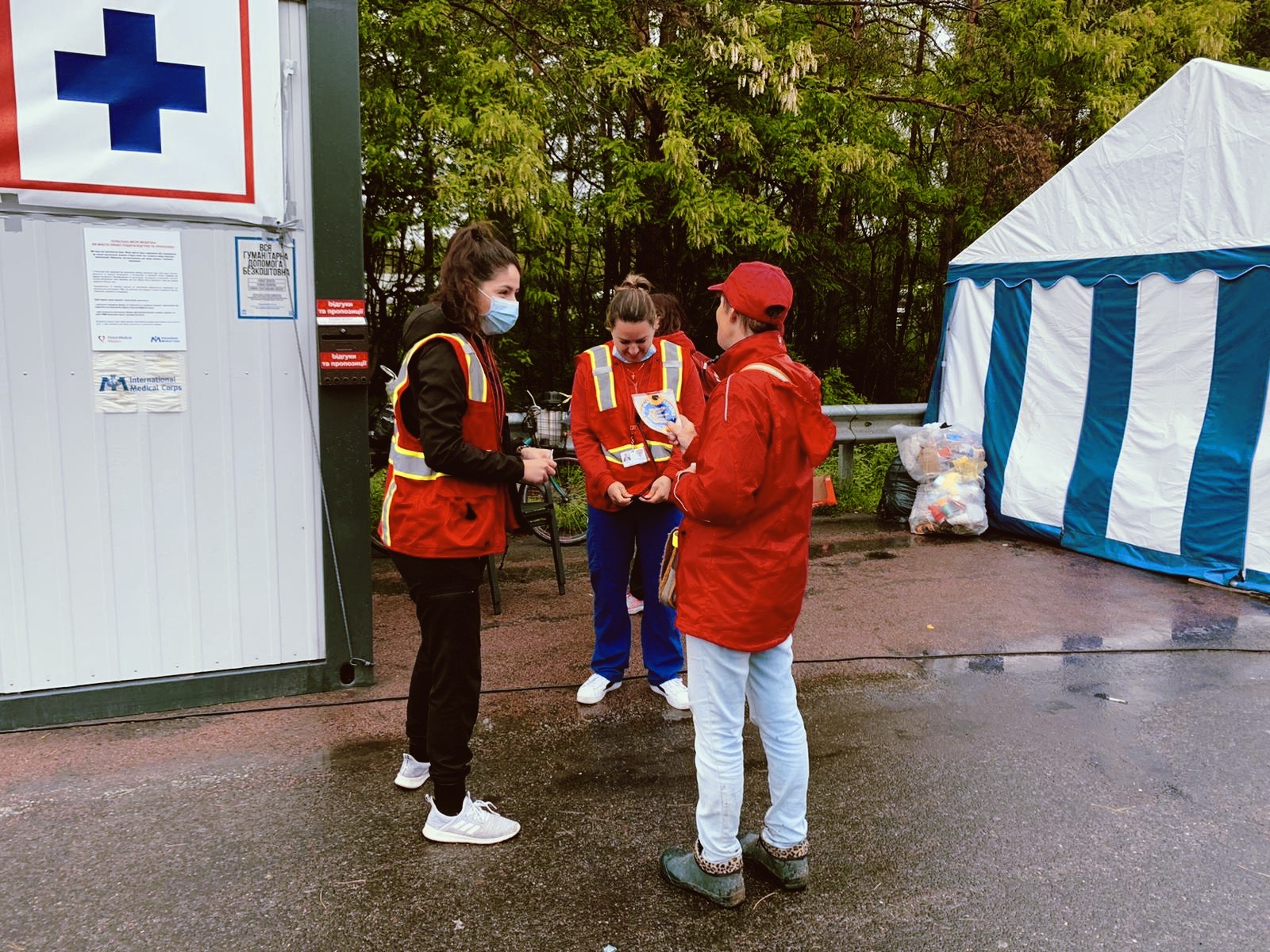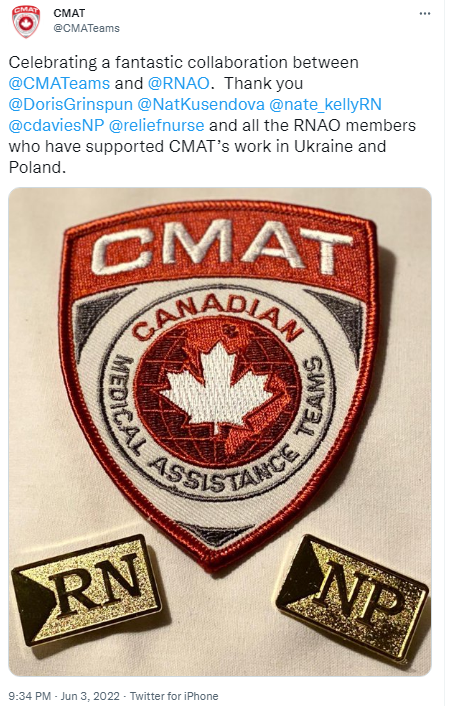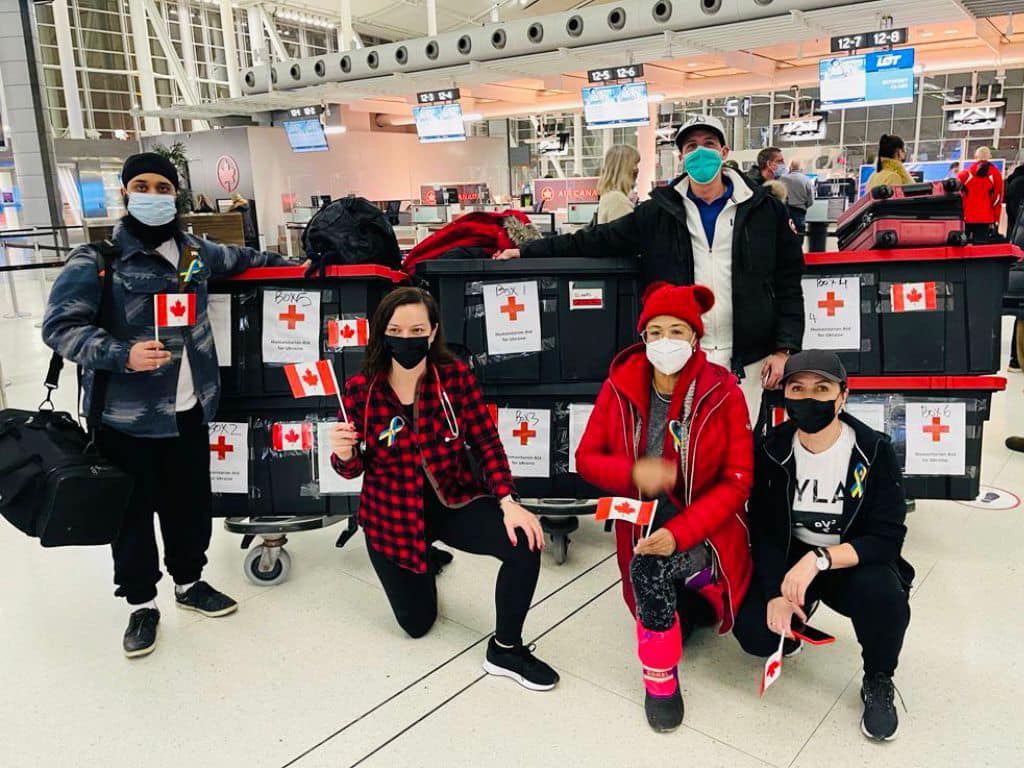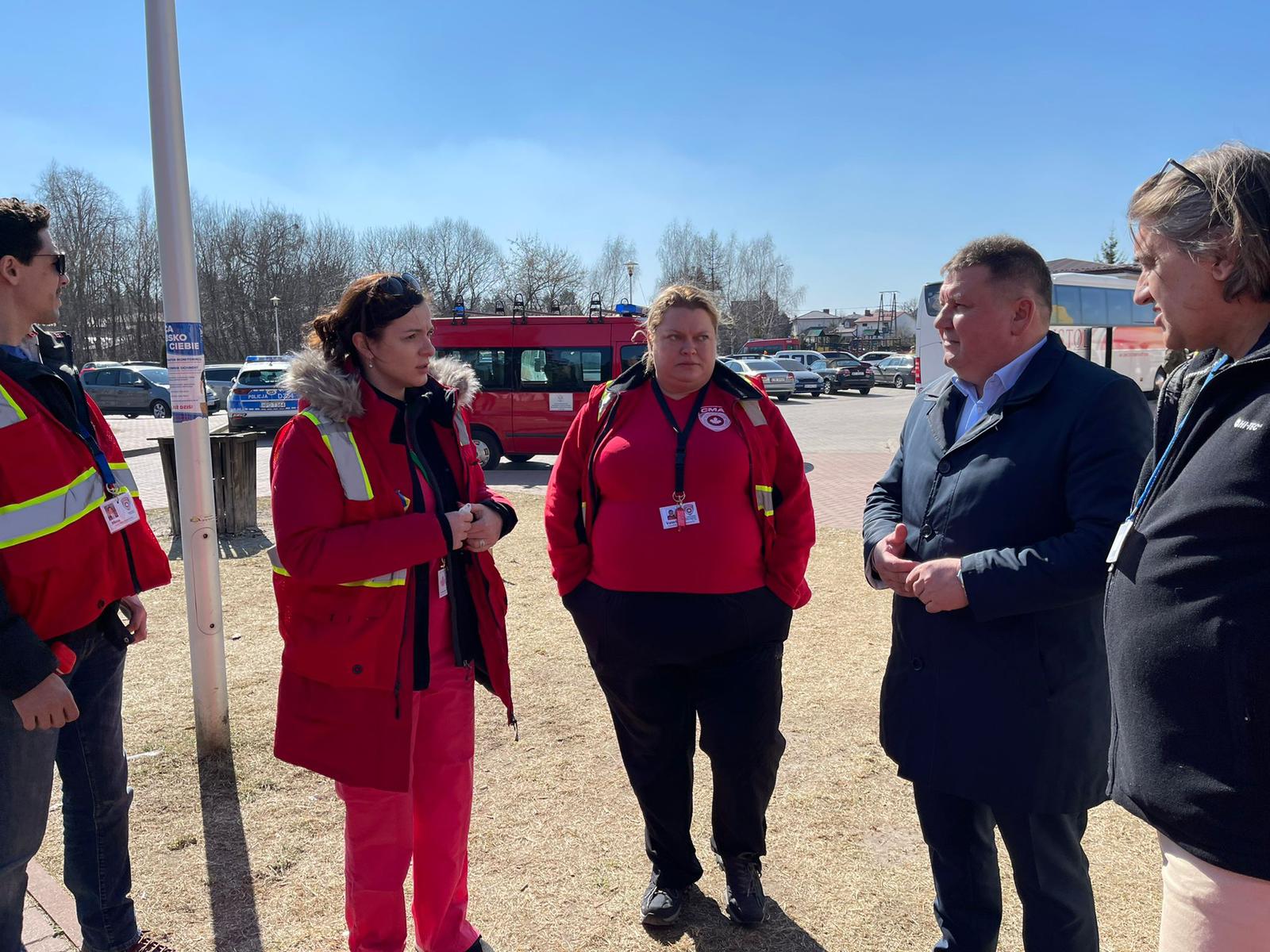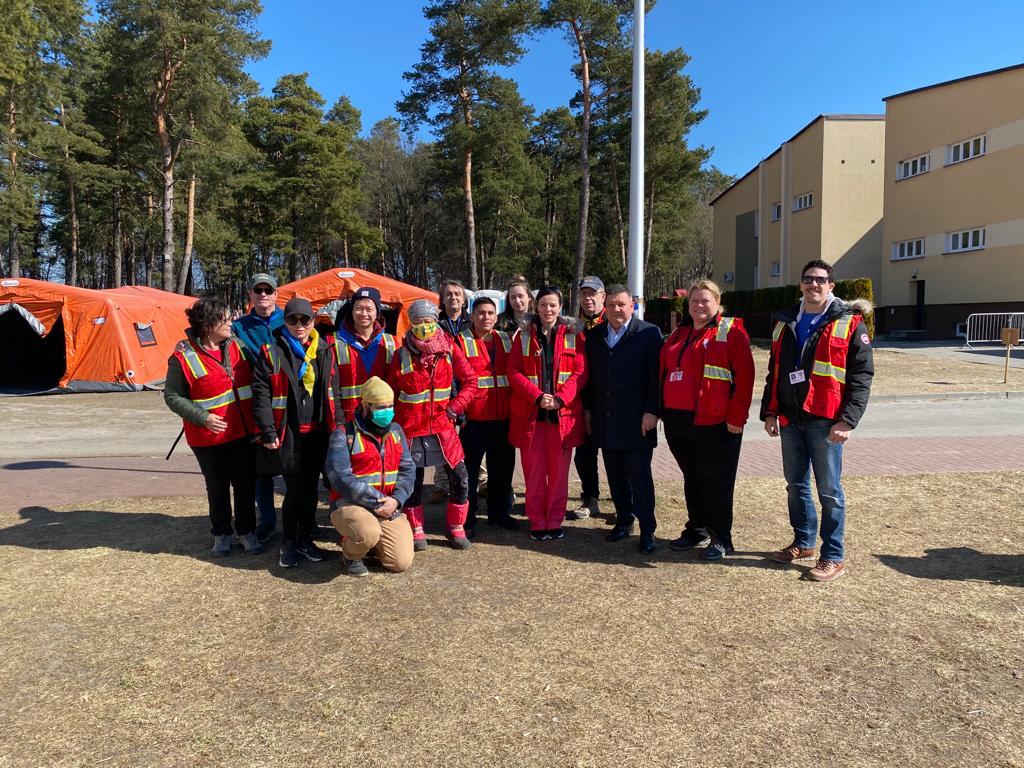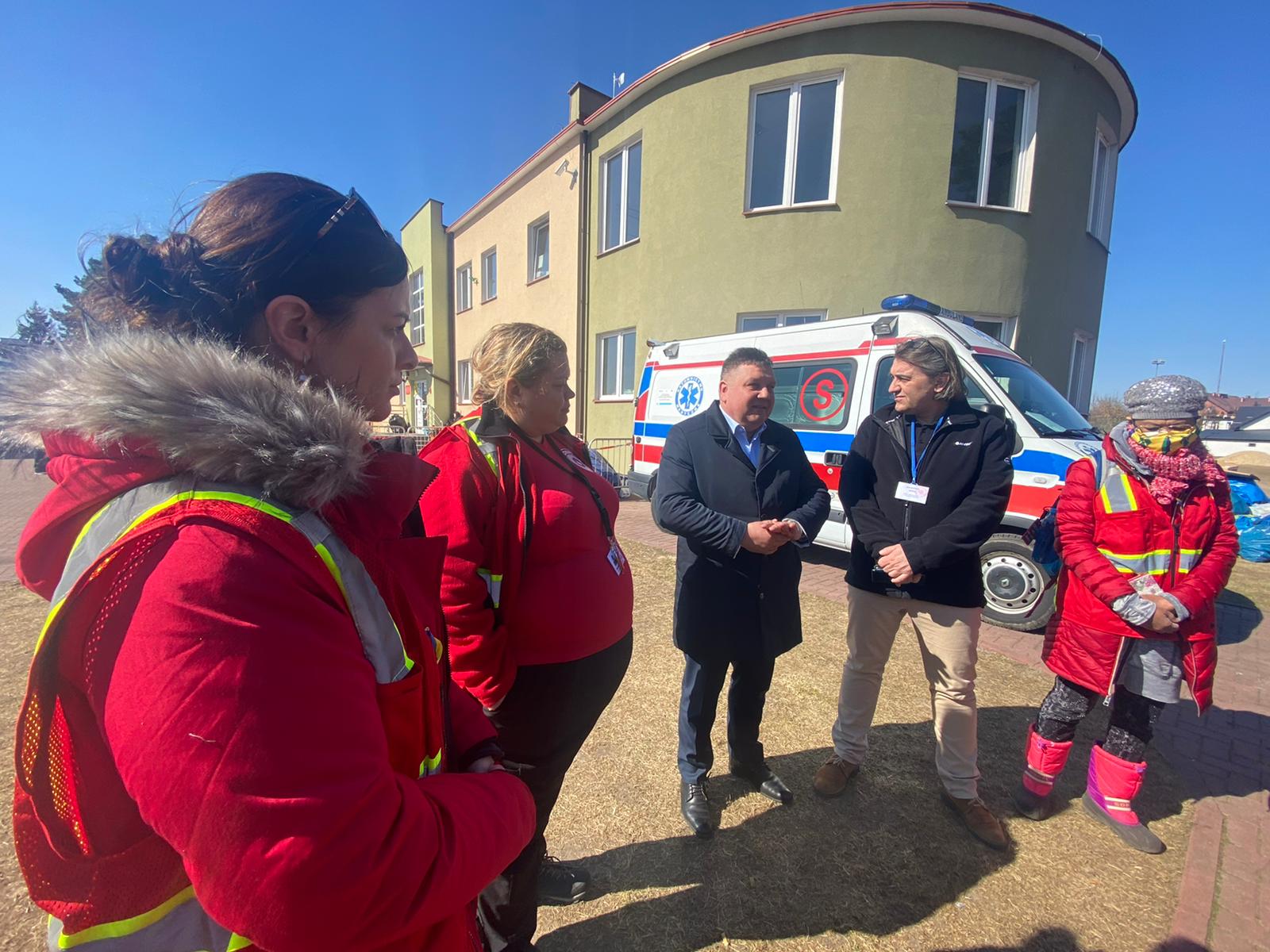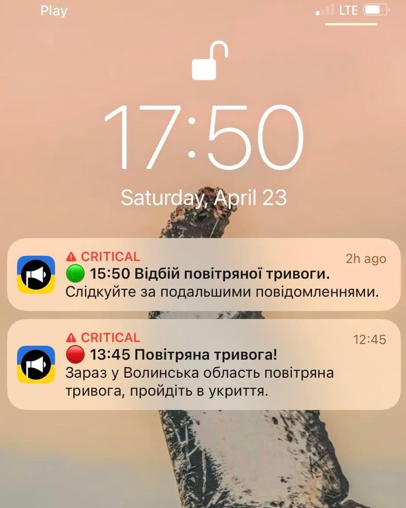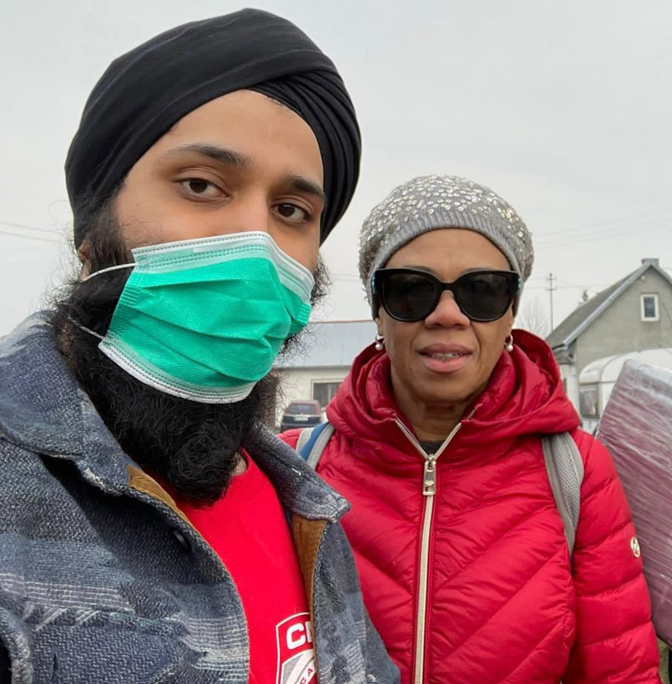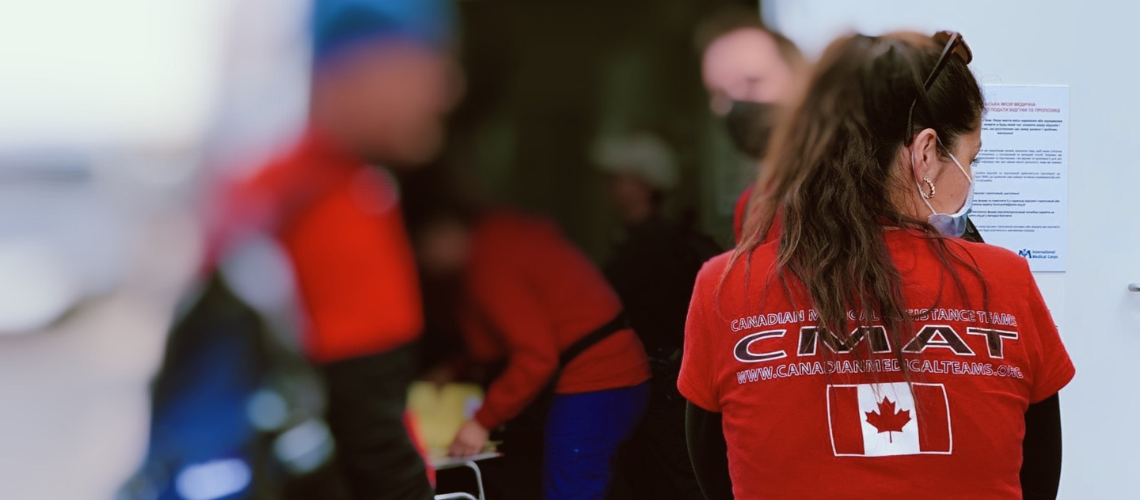
When 25-year-old RN Michaela Parenteau paused her work with Pikangikum First Nation to volunteer with Canadian Medical Assistance Teams (CMAT) in Ukraine, she didn’t know what to expect. Being stationed along the Ukraine-Poland border in a shipping container that was transformed into a fully operational primary care clinic, Parenteau saw more than just medical crises.
As many Ukrainian women and children fled to Poland, while men stayed in Ukraine to fight for their country, Parenteau witnessed devastating goodbyes and history repeating itself. “It was like those old black and white pictures of people in the trains, and they’re all waving to their partners with their hands out the window…There were double-decker buses of families and it’s all women and children passing by to the border with blank stares, and you know they’ve been through chaos and heartbreak. It’s the same image but in colour,” she explains.
The unpredictable nature of the war did not stop Parenteau from making the journey and bringing her knowledge and expertise as a nurse directly to the frontlines. She applied for the deployment as soon as RNAO’s call-out email arrived in her inbox. As an Indigenous nurse from Wabigoon Lake Ojibway Nation in northwestern Ontario, she felt compelled to go. “I don’t have Ukrainian roots but I felt that what was happening in Ukraine – the displacement of people, the cultural genocide, families being separated – is similar to Canada’s colonial past. I wanted to be on the right side of history and use my health-care background to help in any way needed.”
In its nearly 15 years as a grassroots emergency response organization that provides medical aid in major global disasters, this was CMAT’s first conflict-based deployment. Over the course of three months (March – June 2022), CMAT deployed eight teams to Poland and Ukraine to provide surge capacity, as millions of Ukrainians fled to Poland seeking refuge. Despite some bureaucratic challenges, CMAT signed a contract with Polish Medical Mission and established its presence in shipping containers along the border, as well as mobile clinics to care for internally displaced people in Ukraine. With the help of RNAO and its internal planning committee to recruit RNAO members, CMAT received more than 400 applications in the first week from motivated RNs and NPs willing and eager to volunteer their time and expertise to the deployment.
“Most of the problems we had were from a political or bureaucratic nature. Crossing the border became increasingly difficult as the deployment wore on, but the actual delivery of care was always solid – we had no issues with that,” says Valerie Rzepka, NP and executive director of CMAT.
During her 17-day deployment (May 16 – June 3) on CMAT’s Team Foxtrot – comprised of one NP, four other RNs, two physicians, two interpreters and a logistics lead – Parenteau provided physical, mental and emotional support to anyone who needed it. She heard many stories of anguish, trauma and devastation, but says it was rewarding to just be there to listen. “I’ve never been hugged by patients as much as when I was in Ukraine,” she shares, emphasizing that it was also necessary to administer frequent psychosocial care that she was honoured to provide.
RN Kerri Tadeu was also part of Team Foxtrot and says her background in psychiatry was heavily utilized throughout the deployment, despite the language barriers. She recalls meeting a Ukrainian soldier with signs of post-traumatic stress disorder who desperately wanted to return to fight for his country but needed treatment. While the NP on her team, Shereen Worrad, spoke privately with the soldier’s wife, Tadeu looked him in his eyes to establish a therapeutic relationship and tried her best to communicate with him via Google Translate to reassure him that he was in a safe space. “He ended up giving me a box of matches with the Ukrainian flag and I gave him Canadian flag pins,” shares Tadeu. “It might not seem like a lot, but the compassionate and non-judgmental care he received from us helped him agree to get the actual care he needed, which was hospitalization.” Moments like these have formed what Tadeu calls her “core memories” during her time in Ukraine.
Another core memory, shared by both Tadeu and Parenteau, was frequently being asked in disbelief by refugees and residents of Poland in nearby villages, “You came from Canada to help us?” It was apparent that nurses’ willingness to provide person-centred care showed no boundaries, and people were grateful for CMAT’s presence and support amid the conflict.
Because Team Alpha provided a solid foundation in March 2022, all of the other teams – Bravo, Charlie, Delta, Echo, Golf and Hotel – were able to provide compassionate and unified care in a short amount of time.
When the war began on Feb. 24, 2022 RN and MPP for Mississauga Centre Natalia Kusendova knew she had to do something to help, especially given her Polish background. “For a few weeks I was talking almost every day with my relatives in Poland and was thinking of what I can do to help out in not only my role as MPP, but also as a nurse.”
RNAO CEO Dr. Doris Grinspun connected Kusendova with CMAT's lead NP Valerie Rzepka who welcomed Kusendova to help organize the deployment and navigate the bureaucratic and administrative hurdles. “I actually had a meeting at the Polish Ministry of Health, so using my MPP connections and my heritage, I was able to help establish that first medical deployment at the border crossing,” says Kusendova. But her RN status also played an important role when meeting with different levels of government in Poland, as well as local authorities, such as firefighters and paramedics, to determine the most effective way for CMAT to work with the local teams. “When I spoke to the minister of health in Poland, being able to say ‘I am a licensed professional in Ontario, Canada and I am a member of RNAO’ gave me a certain level of credibility when we talked about things like providing medical aid at the border,” adds Kusendova.
Now back home, Kusendova reflects on her involvement with CMAT and the important role of nurses, especially during global crises. “For us as nurses, you never know where life and your nursing expertise will lead you…especially living in a country like Canada. To bring Canada to other countries was something I was really proud of when I went to the border, and people saw the Canadian maple leaf and really recognized that as a symbol and a beacon of democracy.”
Although deploying to an active war zone overseas posed numerous safety risks, many of the nurses who volunteered with CMAT say they did not feel unsafe because there were clear safety measures and protocols in the event they received an air-raid siren alert on their mobile devices, for example. In fact, NP Corsita Garraway, who also deployed to Ukraine with Team Alpha, says entering a danger zone is something nurses are used to and her safety wasn’t something she considered before she left. Instead, when people would ask Garraway about volunteering in a warzone, she would explain: “that’s what nurses do – we go to danger zones. We’re the ones working in emergency – it’s what we do, we look after people. Look at COVID-19, for example, that’s a danger zone, but nurses get the call and we go.”
This was Garraway’s first time volunteering as a nurse, although it was always something she was interested in doing. She says she loved being in Poland to help people in the ways she knew how as an NP, providing relief for both physical and emotional pain. The experience in Poland had a lasting impact on Garraway to the extent that when she returned to Canada, she accepted a contract position in a long-term care home in Newfoundland. Garraway credits her time with CMAT for pushing her to go and says, “If I can go to Poland, I can definitely be in Canada and go to a place where there is a crisis in nursing…That experience actually invigorated me.”
Just like Garraway, Team Alpha member, RN Ameek Singh, shares that he was also revitalized by the journey and inspired to expand his skillset since returning home from deployment. He is in the process of transitioning from a stroke rehabilitation program to mental health emergency. In Poland, Singh says Team Alpha saw all types of medical needs and would triage the clinical situation based on each team member’s expertise. Given it was often a one-time visit with patients, he strived to always make a positive impact, but was mindful of his own limitations when providing care related to mental health. “There’s no point to retraumatize a person to talk about the challenges they’re facing, if I don’t have the solution for them,” explains Singh. “Part of the reason why I’m expanding my scope of work is to be a better trauma-informed clinician, so if I do go back (to Poland or Ukraine), I bring not only my skillset as an emergency nurse but also a mental health nurse that can navigate those challenging waters.”
When asked if he’d go back, Singh responds without hesitation “in a heartbeat.” And he’s not alone.
Although she was deployed a few months after Singh and faced different circumstances, Parenteau also says she would have stayed to help if that was an option, and adds her team shared that mentality given their seamless teamwork and positive impact on the people they served. “Everybody was there to help,” she says, and adds that “it’s all volunteers, so (helping) is just their passion. I feel like it’s more than a team. It’s a family doing great work.”
The nurses who travelled with CMAT during this deployment offered up their knowledge and expertise in an unfamiliar place during a difficult time, and in return they truly made a difference helping those in dire need. They also gained memories and important lessons to inform their practice back home. Nurses can lend their expertise and lead change in a number of impactful ways throughout their careers, which is why Singh encourages all nurses to embrace different opportunities and expand their knowledge to ultimately provide better care and improve health outcomes.
“Reach out to people outside of your comfort zone…Explore your unknowns so we can understand each other better,” says Singh.
About CMAT
Although CMAT’s contract with Polish Medical Mission ended at the end of June 2022 due to a decrease in patient volume, CMAT continues to provide humanitarian aid in response to global crises. CMAT is also in the process of becoming the first Canadian non-profit verified by the World Health Organization (WHO) as a global emergency medical team.
To learn more about its volunteer opportunities or to donate, please visit CMAT.ca.

